Photo: Arturo Lorde
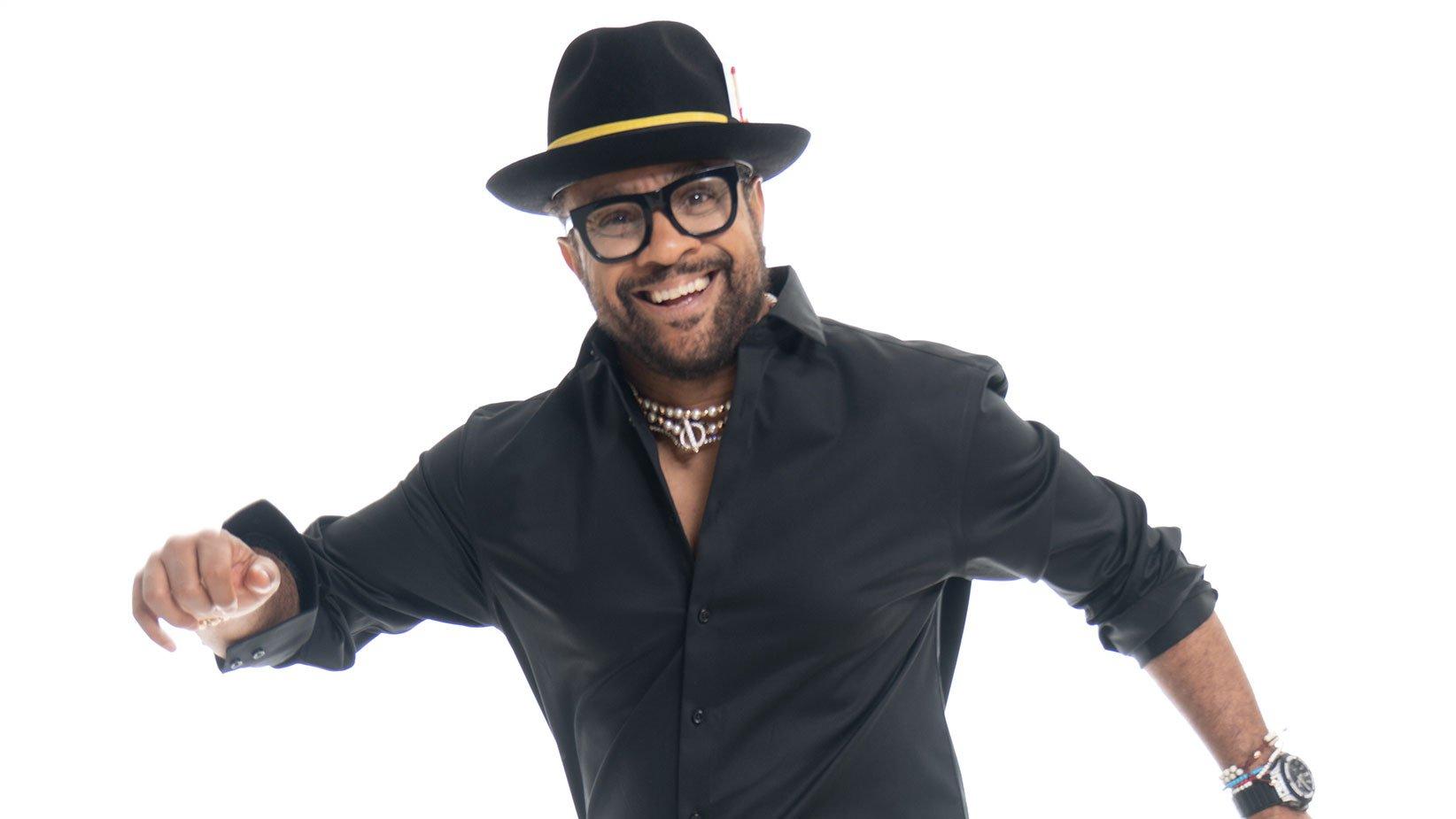
interview
Catching Up With Shaggy: How Another "Crazy" Collab With Sting Led To A GRAMMY-Nominated Frank Sinatra Tribute
On 'Com Fly Wid' Me,' Shaggy's second collaboration with Sting, the dancehall toaster-turned-crooner tackles the Frank Sinatra songbook through the lens of reggae. Shaggy spoke with GRAMMY.com about his long history of interpreting the greats.
"There’s no need for purist music," says reggae icon Shaggy, who brought this attitude to an unlikely source.
His latest album, Com Fly Wid Mi, runs Frank Sinatra songs through a filter of ska, swing, and reggae rhythms. On his second collaboration with producer Sting, Shaggy dropped his signature dancehall toasting voice in favor of a new croon, which floats through a range of Ol' Blue Eyes' tunes — from “Luck Be a Lady” to “Fly Me To The Moon."
"Whatever we're doing has already been done by somebody, but it's the feel that you put in that makes it different," Shaggy tells GRAMMY.com. The pair's unique feel netted Com Fly Wid Mi Best Reggae Album nomination at the 2023 GRAMMYs.
Shaggy — born Orville Richard Burrell — has been making musical nods to his predecessors since 1993. That year, he released a high-energy dancehall version of “Oh Carolina,” a 1958 Folkes Brothers tune that was an early hit in the genre of ska, the precursor to reggae music.
Since then, Shaggy has released more than a dozen albums, often featuring an eclectic range of samples — from Steve Miller Band's "The Joker" to Cyndi Lauper's “Girls Just Wanna Have Fun.” He frequently collaborates with artists like will.i.am, Maxi Priest, Spice, Chaka Khan, Sean Paul, and Barrington Levy. Shaggy’s music has won two GRAMMY Awards, a Brit Award and a Juno award; he received an honorary degree from Brown University and a Jamaican order of distinction.
From his home studio in Miami, where he's worked for many years, Shaggy spoke with Grammy.com about his love of reggae and how Sting helped him learn to appreciate his own voice.
How are you? What have you been up to?
I had a great year. We toured Europe and Australia, and had a really good time. I teamed up with Sting again to do crazy things and we released this album Com Fly Wid Mi. With this project, I didn't know what we were doing and how it would go. But we had a vision.
But the year was also bittersweet because I lost [bass player and producer] Robbie Shakespeare of Sly and Robbie. He was a mentor of mine, like a father figure to me. We went to the funeral and that was rough.
Shakespeare was one of the greatest musicians and also an amazing person. Humility is the biggest thing he taught me. As a person from the ghetto, he helped me realize my purpose. He would say you're here as a servant to change people’s lives.
Well you clearly listened. Don’t you think you’ve found your purpose?
In '93, when we did [a cover of the Folkes Brothers 1959 song] “Oh Carolina,” I was dubbed a one-hit wonder by British tabloids. I had flipped an old song and it went Top 5. It was the first time a dancehall song went to the top.
They said I’d never get another one. They said you’ll never write your own hit. The next record I wrote, it had to be bigger, and I had to write it myself, so I wrote Boombastic” which won a GRAMMY [for Best Reggae Album at the 38th GRAMMY Awards]. So it was off to making history from that point on.
Why did you and Sting decide to interpret Frank Sinatra songs in a reggae style?
Look at artists like John Holt, who wrote “The Tide is High,” which Blondie covered. In his earlier days, he was super popular, and used to do a lot of older American pop songs and soul songs that became part of the Jamaican songbook.
When I listened to [Jamaican radio station] Irie FM in the late '80s and early '90s, they played a lot of American music, as well as country music from Kenny Rogers and Dolly Parton. Songs by Bing Crosby, Nat "King" Cole, and Patti Page were played in my house, with chicken and rice and beans for Sunday dinner. Growing up as a young Jamaican, I heard that music a lot. It’s not by chance that Sting heard me singing Sinatra songs for fun.
I became known for my signature dancehall voice from Boombastic, but with Sting in the studio, he heard my real voice. He said you can really sing, you’re not just a dancehall singer. He was in love with my voice and pushed me out of my comfort zone. I’m not really comfortable with my singing, but Sting is a great producer and my big brother, so if he says sing, I will sing, no matter how uncomfortable it is.
Why are you not comfortable with your singing?
I came up in dancehall, so my heroes are Josie Wales, Super Cat, and Shabba Ranks. Those guys are giants. In dancehall I was getting big hits, so I was comfortable only in playing that part, but if you're comfortable, you are stagnant, and Sting kept pushing me to be uncomfortable.
What unique challenges and opportunities did you both experience turning Sinatra tunes into reggae songs?
The main challenge is that it could easily get corny. Also, Sinatra songs are jazz tunes with five or six chord changes, but most cool reggae is just two chords, so we had to limit the changes to make it cool. So we had to figure out which chords to take out to make it reggae. It can’t be too jazz, or too reggae, so that was the balance.
That’s where the genius of Sting came in. He knew what notes to take out but how to keep the melody that makes it work. That took effort. It's really cool to know I did something cool that nobody had done.
**You’ve worked with Sting twice now, and your previous collaboration with Sting, 44/876, also won a Best Reggae Album GRAMMY Award. How is your work with Sting different from other projects you’ve done?**
This is an unlikely pairing. We’re from two different eras, and he’s a giant. We have a good f—ing time bro. We tell jokes and we're laughing.
He clearly knows way more about music than me, but admires me enough to work with me. In the studio, I’m throwing freestyle and gibberish. He said he had never done that; he’s usually by himself working quietly. He said he had never seen anyone write songs as quickly as me. I write about four songs a day. I never paid attention to the instrumentation as much, but he taught me to pay attention and be a part of it.
Sting said he watched [Aston] “Family Man” [Barrett] play with Bob Marley and tried to emulate him on bass, but couldn't do it. So he came up with a hybrid, and that became the sound of the Police. He and I agree, there’s no need for purist music. Whatever we're doing has already been done by somebody, but it's the feel that you put in that makes it different. There’s always a new story to be told. There’s records you hear, but then there’s records you feel. Like Bob Marley, when he sang, you felt it.
You turned Sinatra’s “Come Fly With Me” into a rocksteady/ska tune and "Oh Carolina" was a remake of Prince Buster's 1960 ska tune. What’s your connection to the legacy of early reggae/ska/rock steady?
My grandmother was a Christian woman, but she loved Toots and the Maytals, and those ska records were played in my home a lot. It’s ghetto music but fun music, and so danceable.
Dude I make everything from what was made before. I’m not inspired by what is happening now. I’m always thinking, how can we take what was done then and make it unique and cool now? Three days ago I was listening to “Guns of Navarone” by the Skatalites, and wondering how can I use this? I pull a lot of my inspiration from that old stuff.
You’ve won many awards and accolades. Which one feels most special to you?
I’m proud of the JUNO [Canadian Music Award] because I was the only international act to get one. But anyone who gets a GRAMMY is happy.
And here we are again. I’ve been a changer of this reggae genre through and through. I step outside the box, that’s the only way the genre will grow. I take changes, I step out.
Reggae music has gone through so many changes and iterations since its origins in the late 1960s in Jamaica. What do you think is the core element of reggae that gives it such staying power?
Reggae is the first and last music; so many genres have come from it. Reggaeton started from Puerto Rico. It was Spanish reggae, and the Latin community grabbed onto it and it became massive. Look at hip-hop. Kool Herc took Jamaican toasting and put it over R&B beats. When I go to Africa, they play dancehall in the clubs, not Fela Kuti.
The impact Jamaican culture has had on the global culture is incredible. I am blessed to be a reggae artist. Reggae is not an art form, it's a lifestyle. I get up every day and this is what I’m doing. I don’t want to do anything else. Bruh, I work for the rewards, not the awards. I’m so fortunate. I would do this for free.
What made you want to sing in the first place?
I learned the tone of my voice in the military by singing cadences. I would do these comical cadencies, so they called me out to sing them all the time and it made people laugh. It was hard because we did four or five miles at a time, so that was a lot of singing.
I had no lessons, never had a vocal coach. I started on sound systems and perfected my craft by hanging with great singers like Barrington Levy. The closest I came to real training was with Sting. Anything theoretical was done through Sting.
You’ve been mentored by Sting and Jamaican artists like Robbie Shakespeare, but now you’re also a mentor to younger musicians. How does that make you feel?
After a while life comes to you with a pursuit. James Brown told me once in my dressing room that they can take away your wife and your house, but not your talent. I believed him.
None of those accolades I can take with me, but I can inspire, and change someone’s family. I’m the only musician in my family, and now I have a niece at Princeton. We have changed the cycle of our lives, and that moves me, that excites me.
How has life during the pandemic been for you? Have you stayed busy or have you been taking it easy?
I worked throughout the whole thing. Now I’m excited about production projects with young writers and musicians. I’m like a kid in a candy store. Everybody keeps asking for a Shaggy record. But when Sting says let's go now, you go now! So we did the Sinatra album. It's like I'm his little project. But I’m overdue for a Shaggy record.
Will your new record come out in 2023?
I’ve been working on my latest record for the last three years. I have about 100 songs, and keep redoing it. I get inspired over and over again with new stuff. The hardest part is taking stuff out.
Every record from my career has been done in the basement of my house, and I’m still in my basement. I’m still that guy, down with my crew and my team and f—ing with shit, and having fun.
Whatever I do next won’t be what’s expected. If I do what's expected, then I’ve failed. I’m always looking for that new sound. I make records selfishly to please me. I don’t want to be bored, I’m allergic to boredom. If I'm not bored, then the record is timeless.

Photo: Aitor Laspiur
interview
Omar Apollo Embraces Heartbreak And Enters His "Zaddy" Era On 'God Said No'
Alongside producer Teo Halm, Omar Apollo discusses creating 'God Said No' in London, the role of poetry in the writing process, and eventually finding comfort in the record's "proof of pain."
"Honestly, I feel like a zaddy," Omar Apollo says with a roguish grin, "because I'm 6'5" so, like, you can run up in my arms and stay there, you know what I mean?"
As a bonafide R&B sensation and one of the internet’s favorite boyfriends, Apollo is likely used to the labels, attention and online swooning that come with modern fame. But in this instance, there’s a valid reason for asking about his particular brand of "zaddyhood": he’s been turned into a Bratz doll.
In the middle of June, the popular toy company blasted a video to its nearly 5 million social media followers showing off the singer as a real-life Bratz Boy — the plastic version draped in a long fur coat (shirtless, naturally), with a blinged-out cross necklace and matching silver earrings as he belts out his 2023 single "3 Boys" from a smoke-covered stage.
The video, which was captioned "Zaddy coded," promptly went viral, helped along by an amused Apollo reposting the clip to his own Instagram Story. "It was so funny," he adds. "And it's so accurate; that's literally how my shows go. It made me look so glamorous, I loved it."
The unexpected viral moment came with rather auspicious timing, considering Apollo is prepping for the release of his hotly anticipated sophomore album. God Said No arrives June 28 via Warner Records.
In fact, the star is so busy with the roll-out that, on the afternoon of our interview, he’s FaceTiming from the back of a car. The day prior, he’d filmed the music video for "Done With You," the album’s next single. Now he’s headed to the airport to jet off to Paris, where he’ll be photographed front row at the LOEWE SS25 men’s runway show in between Sabrina Carpenter and Mustafa — the latter of whom is one of the few collaborators featured on God Said No.
Apollo’s trusted co-writer and producer, Teo Halm, is also joining the conversation from his home studio in L.A. In between amassing credits for Beyoncé (The Lion King: The Gift), Rosalía and J Balvin (the Latin GRAMMY-winning "Con Altura"), SZA ("Notice Me" and "Open Arms" featuring Travis Scott) and others, the 25-year-old virtuoso behind the boards had teamed up with Apollo on multiple occasions. Notably, the two collabed on "Evergreen (You Didn’t Deserve Me At All)," which helped Apollo score his nomination for Best New Artist at the 2023 GRAMMYs.
In the wake of that triumph, Apollo doubled down on their creative chemistry by asking Halm to executive produce God Said No. (The producer is also quick to second his pal’s magnetic mystique: "Don't get it twisted, he's zaddy, for sure.")
Apollo bares his soul like never before across the album’s 14 tracks, as he processes the bitter end of a two-year relationship with an unnamed paramour. The resulting portrait of heartbreak is a new level of emotional exposure for a singer already known for his unguarded vulnerability and naked candor. (He commissioned artist Doron Langberg to paint a revealing portrait of him for the cover of his 2023 EP Live For Me, and unapologetically included a painting of his erect penis as the back cover of the vinyl release.)
On lead single "Spite," he’s pulled between longing and resentment in the wake of the break-up over a bouncing guitar riff. Second single "Dispose of Me" finds Apollo heartsick and feeling abandoned as he laments, "It don’t matter if it’s 25 years, 25 months/ It don’t matter if it’s 25 days, it was real love/ We got too much history/ So don’t just dispose of me."
Elsewhere, the singer offers the stunning admission that "I would’ve married you" on album cut "Life’s Unfair." Then, on the very next song — the bumping, braggadocious "Against Me" — Apollo grapples with the reality that he’s been permanently altered by the love affair while on the prowl for a rebound. "I cannot act like I’m average/ You know that I am the baddest bitch," he proclaims on the opening verse, only to later admit, "I’ve changed so much, but have you heard?/ I can’t move how I used to."
More Omar Apollo News & Videos

Omar Apollo Embraces Heartbreak And Enters His "Zaddy" Era On 'God Said No'

How Danna Paola Created 'CHILDSTAR' By Deconstructing Herself

On Omar Apollo's New EP 'Live for Me,’ Limitless Experimentation Created Catharsis

Listen To GRAMMY.com's LGBTQIA+ Pride Month 2023 Playlist Featuring Demi Lovato, Sam Smith, Kim Petras, Frank Ocean, Omar Apollo & More

Omar Apollo On “Evergreen,” Growth & Longing
Given the personal subject matter filling God Said No — not to mention the amount of acclaim he earned with Ivory — it would be understandable if Apollo felt a degree of pressure or anxiety when it came to crafting his sophomore studio set. But according to the singer, that was entirely not the case.
"I feel like I wouldn’t be able to make art if I felt pressure," he says. "Why would I be nervous about going back and making more music? If anything, I'm more excited and my mind is opened up in a whole other way and I've learned so much."
In order to throw his entire focus into the album’s creation, Apollo invited Halm to join him in London. The duo set up shop in the famous Abbey Road Studios, where the singer often spent 12- to 13-hour days attempting to exorcize his heartbreak fueled by a steady stream of Aperol spritzes and cigarettes.
The change of scenery infused the music with new sonic possibilities, like the kinetic synths and pulsating bass line that set flight to "Less of You." Apollo and Halm agree that the single was directly inspired by London’s unique energy.
"It's so funny because we were out there in London, but we weren't poppin' out at all," the Halm says. "Our London scene was really just, like, studio, food. Omar was a frickin' beast. He was hitting the gym every day…. But it was more like feeding off the culture on a day-to-day basis. Like, literally just on the walk to the studio or something as simple as getting a little coffee. I don't think that song would've happened in L.A."
Poetry played a surprisingly vital role in the album’s creation as well, with Apollo littering the studio with collections by "all of the greats," including the likes of Ocean Vuong, Victoria Chang, Philip Larkin, Alan Ginsberg, Mary Oliver and more.
"Could you imagine making films, but never watching a film?" the singer posits, turning his appreciation for the written art form into a metaphor about cinema. "Imagine if I never saw [films by] the greats, the beauty of words and language, and how it's manipulated and how it flows. So I was so inspired."
Perhaps a natural result of consuming so much poetic prose, Apollo was also led to experiment with his own writing style. While on a day trip with his parents to the Palace of Versailles, he wrote a poem that ultimately became the soaring album highlight "Plane Trees," which sends the singer’s voice to new, shiver-inducing heights.
"I'd been telling Teo that I wanted to challenge myself vocally and do a power ballad," he says. "But it wasn't coming and we had attempted those songs before. And I was exhausted with writing about love; I was so sick of it. I was like, Argh, I don't want to write anymore songs with this person in my mind."
Instead, the GRAMMY nominee sat on the palace grounds with his parents, listening to his mom tell stories about her childhood spent in Mexico. He challenged himself to write about the majestic plane tree they were sitting under in order to capture the special moment.
Back at the studio, Apollo’s dad asked Halm to simply "make a beat" and, soon enough, the singer was setting his poem to music. (Later, Mustafa’s hushed coda perfected the song’s denouement as the final piece of the puzzle.) And if Apollo’s dad is at least partially responsible for how "Plane Trees" turned out, his mom can take some credit for a different song on the album — that’s her voice, recorded beneath the same plane tree, on the outro of delicate closer "Glow."
Both the artist and the producer ward off any lingering expectations that a happy ending will arrive by the time "Glow" fades to black, however. "The music that we make walks a tightrope of balancing beauty and tragedy," Halm says. "It's always got this optimism in it, but it's never just, like, one-stop shop happy. It's always got this inevitable pain that just life has.
"You know, even if maybe there wasn't peace in the end for Omar, or if that wasn't his full journey with getting through that pain, I think a lot of people are dealing with broken hearts who it really is going to help," the producer continues. "I can only just hope that the music imparts leaving people with hope."
Apollo agrees that God Said No contains a "hopeful thread," even if his perspective on the project remains achingly visceral. Did making the album help heal his broken heart? "No," he says with a sad smile on his face. "But it is proof of pain. And it’s a beautiful thing that is immortalized now, forever.
"One day, I can look back at it and be like, Wow, what a beautiful thing I experienced. But yeah, no, it didn't help me," he says with a laugh.
Latest News & Exclusive Videos

Watch Ray Charles Win Album Of The Year In 2005
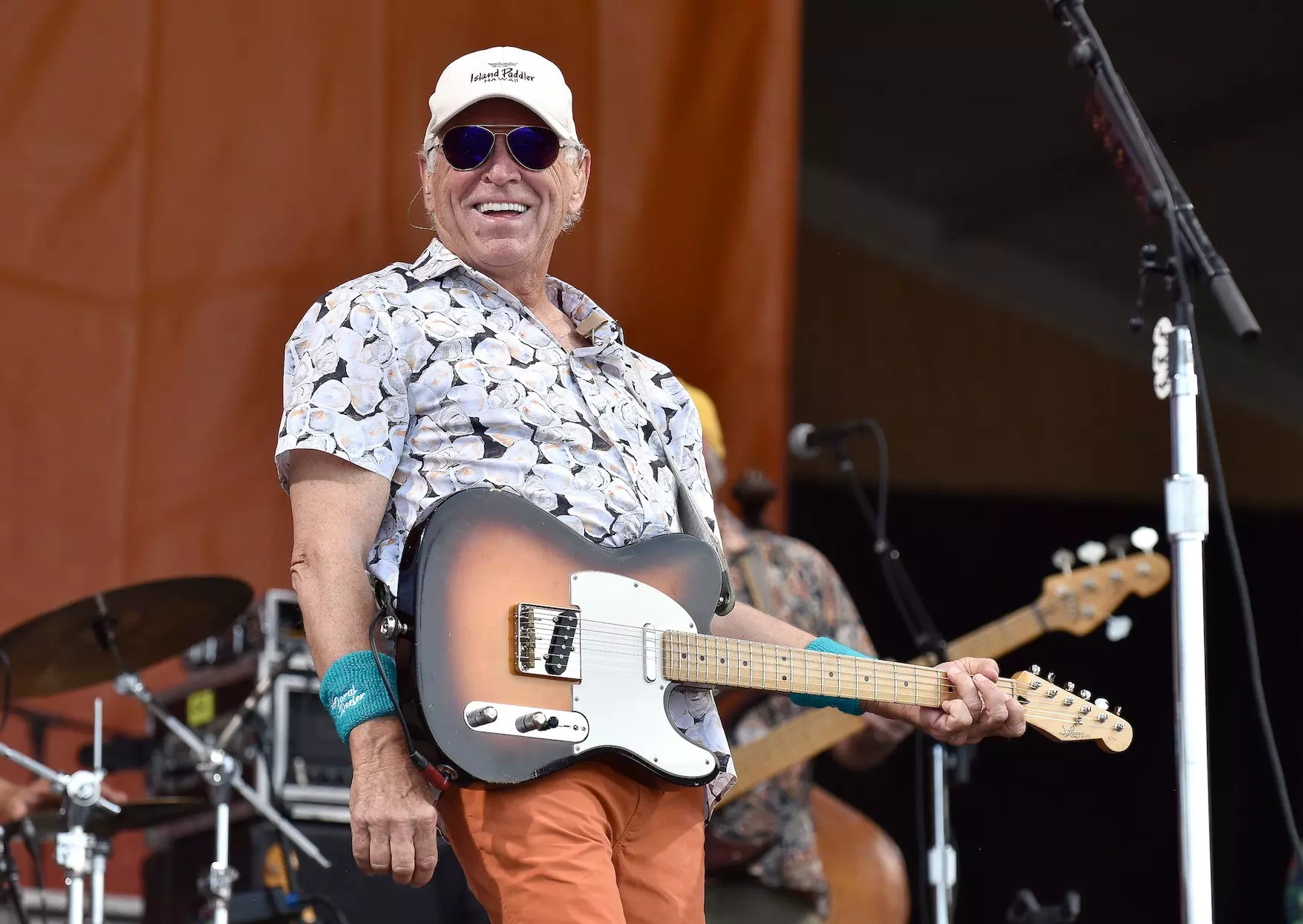
A Pirate Looks At Infinity: Jimmy Buffett's Legacy In 15 Songs
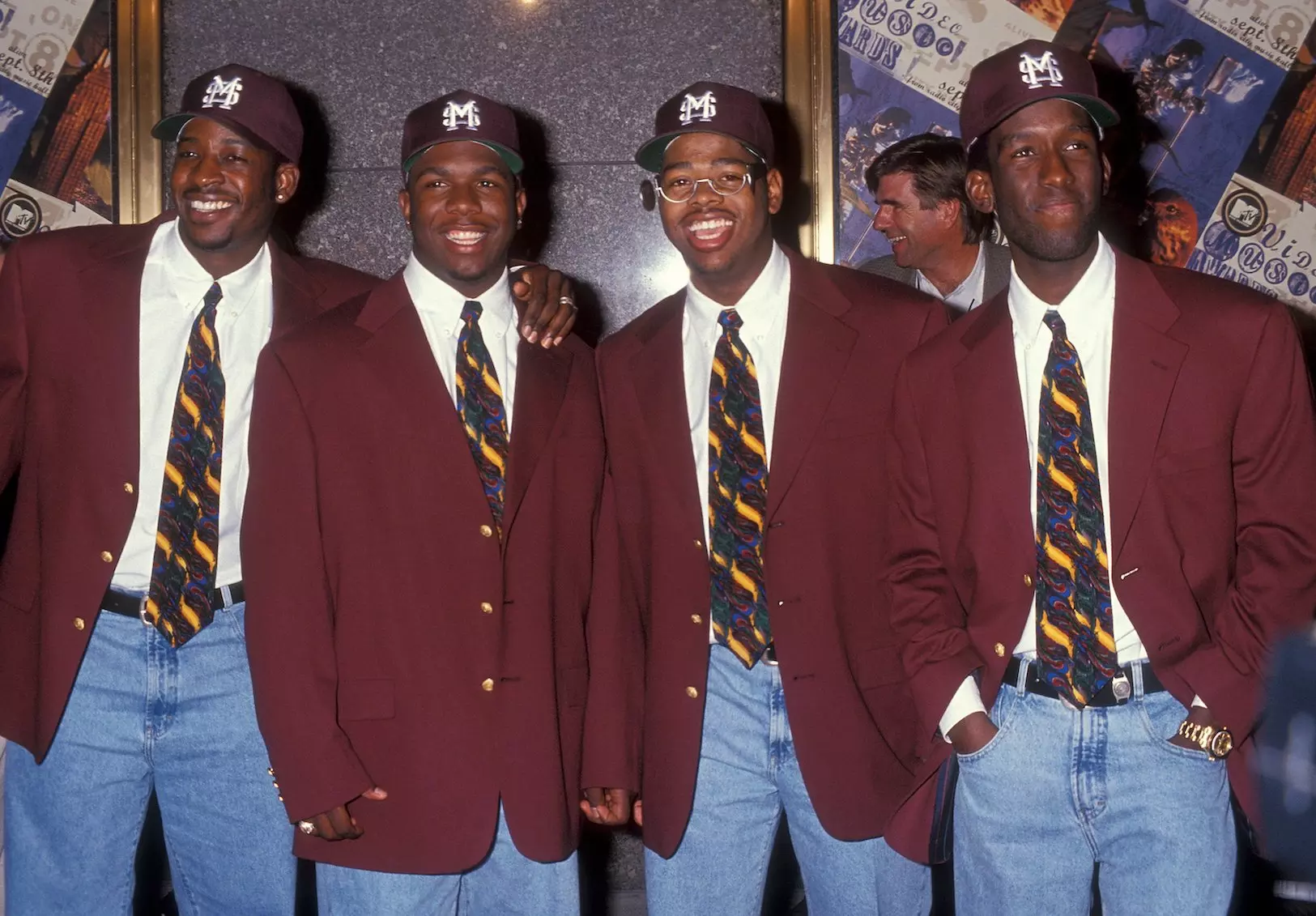
8 Reasons Why Boyz II Men's 'II' Was The '90s Ultimate R&B Blockbuster
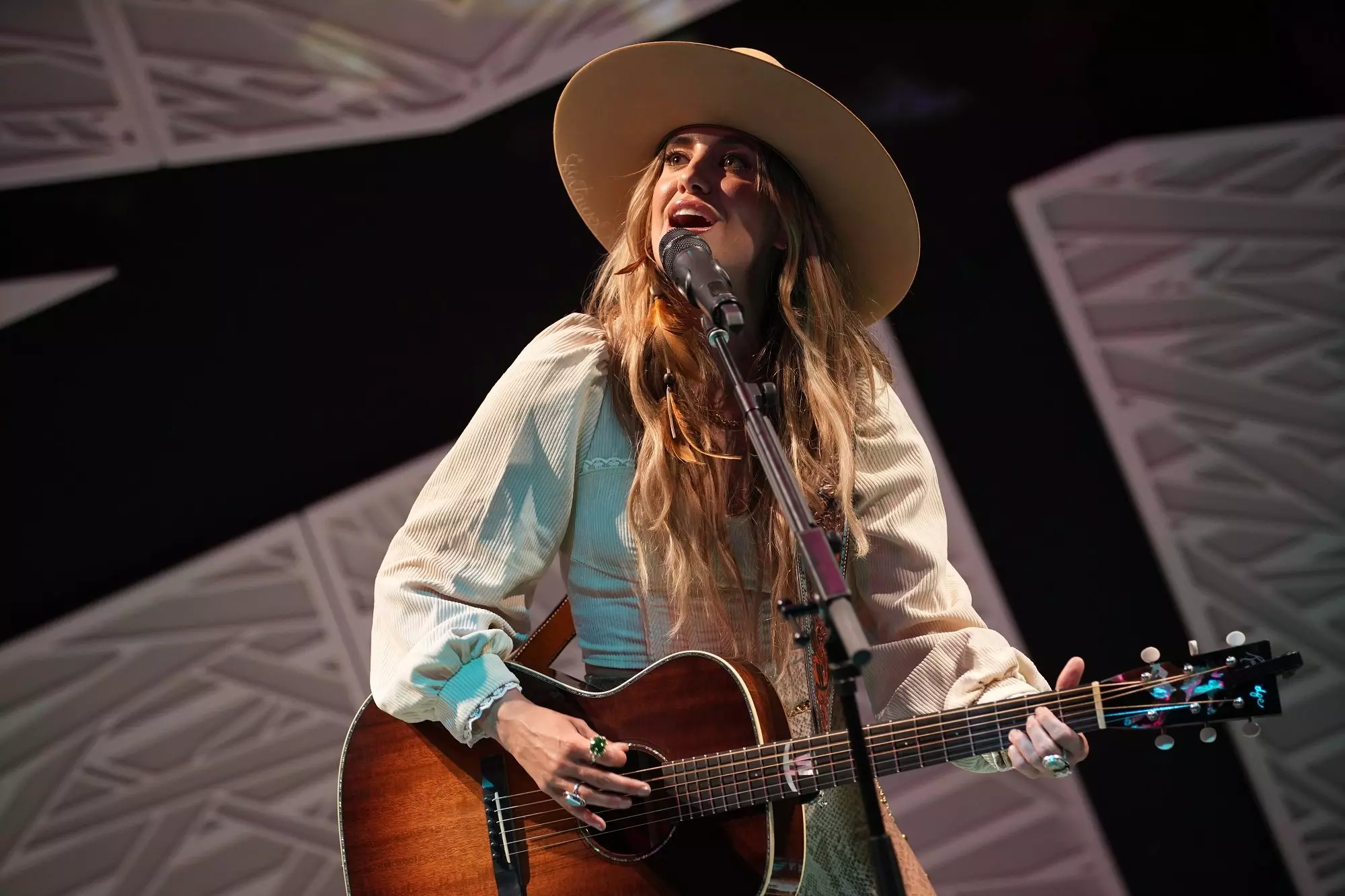
20 Live Events At The GRAMMY Museum This September: Experience Orville Peck, Kate Hudson, Tierra Whack & More

Watch Wunderhorse Perform "July"
.jpg)
Photo: Michael Kovac/Getty Images for The Recording Academy
video
GRAMMY Rewind: Watch Beyoncé's Heartfelt Speech For Her Record-Breaking Win In 2023
Relive the night Beyoncé received a gramophone for Best Dance/Electronic Album for 'RENAISSANCE' at the 2023 GRAMMYS — the award that made her the most decorated musician in GRAMMY history.
Six years after her last solo studio album, Beyoncé returned to the music industry with a bang thanks to RENAISSANCE. In homage to her late Uncle Johnny, she created a work of art inspired by the sounds of disco and house that wasn't just culturally impactful — it was history-making.
At the 2023 GRAMMYs, RENAISSANCE won Best Dance/Electronic Album. Marking Beyoncé's 32nd golden gramophone, the win gave the superstar the record for most gramophones won by an individual act.
In this episode of GRAMMY Rewind, revisit the historic moment Queen Bey took the stage to accept her record-breaking GRAMMY at the 65th Annual GRAMMY Awards.
"Thank you so much. I'm trying not to be too emotional," Beyoncé said at the start of her acceptance speech. "I'm just trying to receive this night."
With a deep breath, she began to list her praises that included God, her family, and the Recording Academy for their continued support throughout her career.
"I'd like to thank my Uncle Johnny, who is not here, but he's here in spirit," Beyoncé proclaimed. "I'd like to thank the queer community for your love and inventing this genre."
Watch the video above for Beyoncé's full speech for Best Dance/Electronic Album at the 2023 GRAMMYs. Check back to GRAMMY.com for more new episodes of GRAMMY Rewind.
Tune into the 2024 GRAMMYs on Sunday, Feb. 4, airing live on the CBS Television Network (8-11:30 p.m. LIVE ET/5-8:30 p.m. LIVE PT) and streaming on Paramount+ (live and on-demand for Paramount+ with SHOWTIME subscribers, or on-demand for Paramount+ Essential subscribers the day after the special airs).
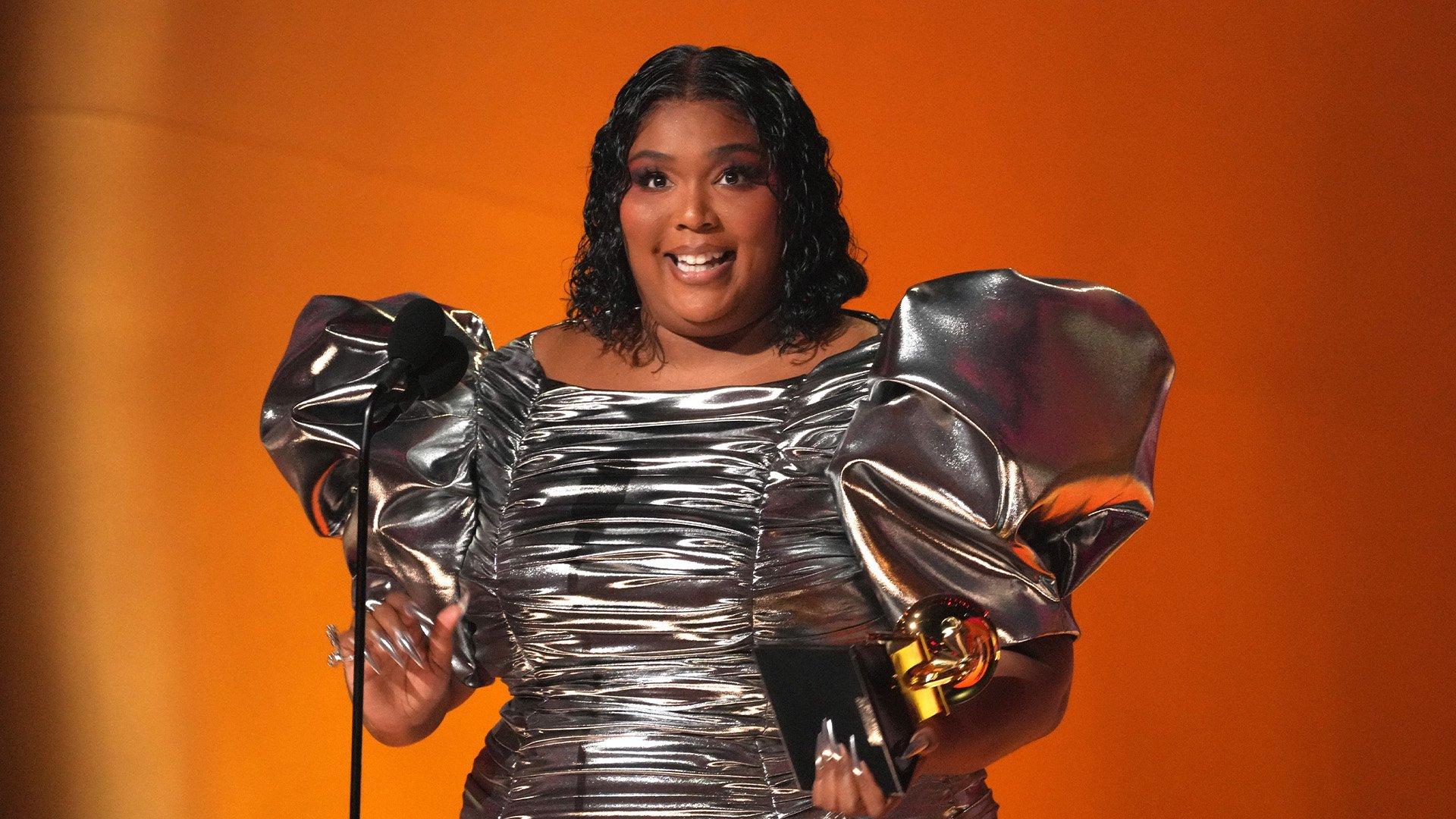
Photo: Kevin Mazur/Getty Images for The Recording Academy
video
GRAMMY Rewind: Lizzo Thanks Prince For His Influence After "About Damn Time" Wins Record Of The Year In 2023
Watch Lizzo describe how Prince’s empowering sound led her to “dedicate my life to positive music” during her Record Of The Year acceptance speech for “About Damn Time” at the 2023 GRAMMYs.
Since the start of her career, four-time GRAMMY winner Lizzo has been making music that radiates positive energy. Her Record Of The Year win for "About Damn Time" at the 2023 GRAMMYs proved that being true to yourself and kind to one another always wins.
Travel back to revisit the moment Lizzo won her award in the coveted category in this episode of GRAMMY Rewind.
"Um, huh?" Lizzo exclaimed at the start of her acceptance speech. "Let me tell you something. Me and Adele are having a good time, just enjoying ourselves and rooting for our friends. So, this is an amazing night. This is so unexpected."
Lizzo kicked off her GRAMMY acceptance speech by acknowledging Prince's influence on her sound. "When we lost Prince, I decided to dedicate my life to making positive music," she said. "This was at a time when positive music and feel-good music wasn't mainstream at that point and I felt very misunderstood. I felt on the outside looking in. But I stayed true to myself because I wanted to make the world a better place so I had to be that change."
As tracks like "Good as Hell" and "Truth Hurts" scaled the charts, she noticed more body positivity and self-love anthems from other artists. "I'm just so proud to be a part of it," she cheered.
Most importantly, Lizzo credited staying true to herself despite the pushback for her win. "I promise that you will attract people in your life who believe in you and support you," she said in front of a tearful audience that included Beyoncé and Taylor Swift in standing ovation, before giving a shout-out to her team, family, partner and producers on the record, Blake Slatkin and Ricky Reed.
Watch the video above for Lizzo's complete acceptance speech for Record Of The Year at the 2023 GRAMMYs. Check back to GRAMMY.com for more new episodes of GRAMMY Rewind, and be sure to tune into the 2024 GRAMMYs on Sunday, Feb. 4, airing live on the CBS Television Network (8-11:30 p.m. LIVE ET/5-8:30 p.m. LIVE PT) and streaming on Paramount+ (live and on-demand for Paramount+ with SHOWTIME subscribers, or on-demand for Paramount+ Essential subscribers the day after the special airs).
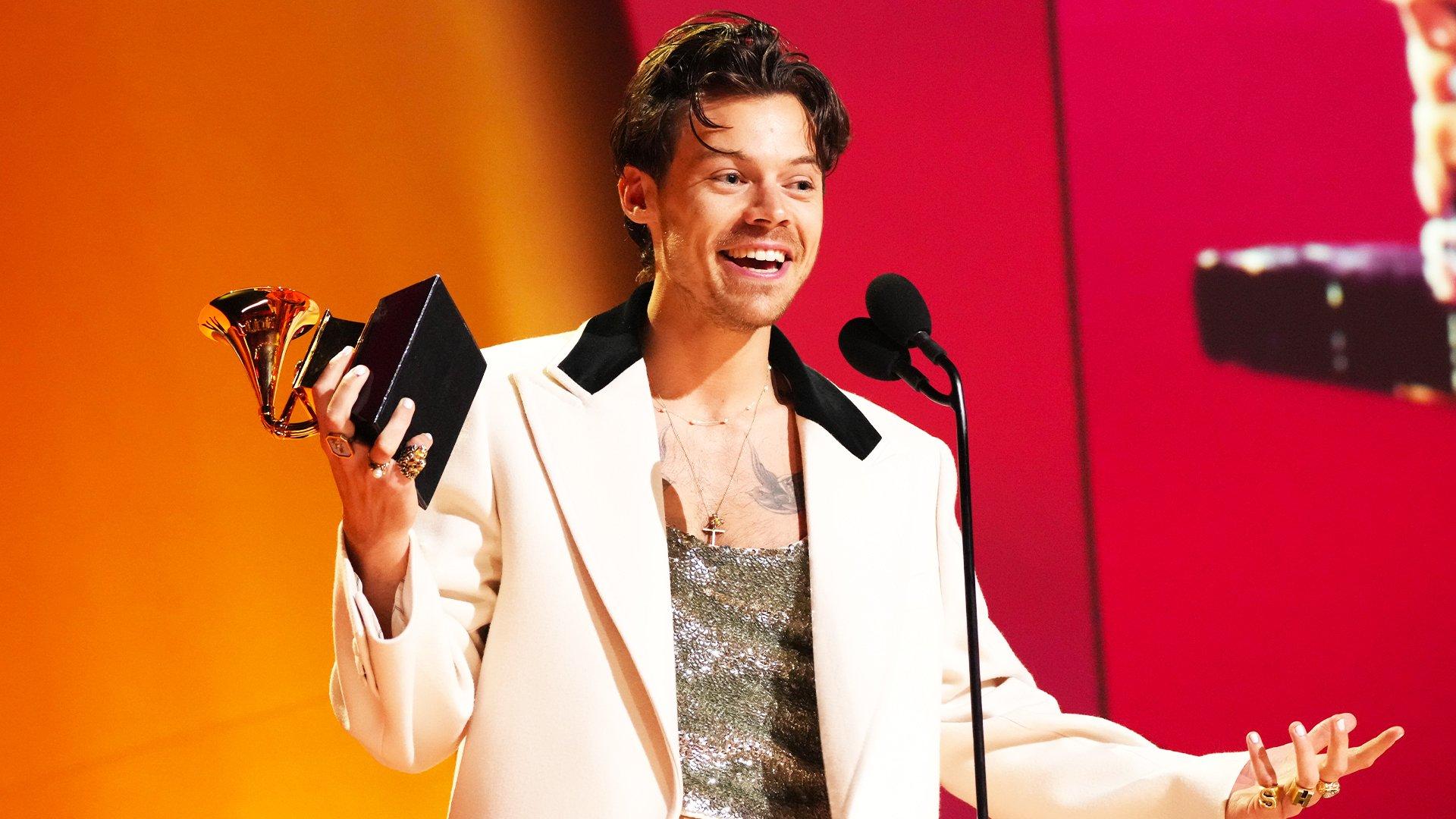
Photo: Kevin Mazur
video
GRAMMY Rewind: Harry Styles Celebrates His Fellow Nominees (And His Biggest Fan) After Album Of The Year Win In 2023
Revisit the moment Harry Styles accepted the most coveted award of the evening for 'Harry's House' and offered a heartfelt nod to his competitors — Beyoncé, Adele, Lizzo, Coldplay and more.
After a wildly successful debut and sophomore record, you'd think it was impossible for Harry Styles to top himself. Yet, his third album, Harry's House, proved to be his most prolific yet.
The critically acclaimed project first birthed Styles' record-breaking, chart-topping single, "As It Was," then landed three more top 10 hits on the Billboard Hot 100 with "Late Night Talking," "Music for a Sushi Restaurant" and "Matilda." The album and "As It Was" scored Styles six nominations at the 2023 GRAMMYs — and helped the star top off his massive Harry's House era with an Album Of The Year win.
In this episode of GRAMMY Rewind, revisit Styles' big moment from last year's ceremony, which was made even more special by his superfan, Reina Lafantaisie. Host Trevor Noah (who will return as emcee for the 2024 GRAMMYs) handed the mic to Lafantaisie to announce Styles as the winner, and the two shared a celebratory hug before Styles took the mic.
"I've been so, so inspired by every artist in this category," said Styles, who was up against other industry titans like Beyoncé, Adele, Lizzo and Coldplay. "On nights like tonight, it's important for us to remember that there is no such thing as 'best' in music. I don't think any of us sit in the studio, making decisions based on what will get us [an award]."
Watch the video above to see Harry Styles' complete acceptance speech alongside his collaborators Kid Harpoon and Tyler Johnson. Check back to GRAMMY.com for more new episodes of GRAMMY Rewind, and be sure to tune into the 2024 GRAMMYs on Sunday, Feb. 4, airing live on the CBS Television Network (8 -11:30 p.m. LIVE ET/5-8:30 p.m. LIVE PT) and streaming on Paramount+ (live and on demand for Paramount+ with SHOWTIME subscribers, or on demand for Paramount+ Essential subscribers the day after the special airs).
